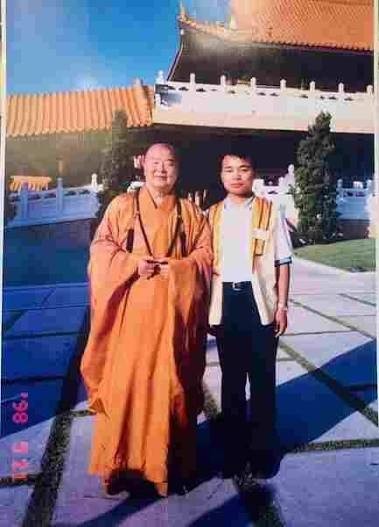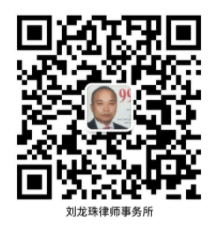- 刘强东心声:太他妈毒!要钱不给居然说我强奸! [2023/09]
- 刘龙珠律师法律评论:章莹颖家人狮子大开口要50万,涉嫌违法,可能坐牢20年! 文/刘龙 [2017/08]
- 校园枪击案每天都有,前加州副州长候选人杨承志有绝招 [2024/05]
- 白人警察杀人罪成立,拜登打电话慰问佛洛伊德家属 [2021/04]
- 劉龍珠律師法律評論:郭文貴的房產照片 [2017/04]
- 刘强东案女主微信聊天记录曝光:床单——东哥的救命稻草? [2018/09]
- 亚特兰大八亚裔女遭屠杀是缘于白男性瘾还是种族歧视? [2023/08]
- 刘强东事件惊天大黑幕 [2021/06]
- 刘龙珠律师法律评论:王宝强、张纪中、张靓颖、何洁的美国房子大对比 [2016/12]
- 刘龙珠律师法律评论:没有结婚证这张纸,张靓颖能分到冯珂的豪宅吗? [2018/04]
- 华人再也不能上哈佛耶鲁了?! [2021/02]
- 飙——美国华女一枪毙命入室歹徒 老公捡回一条命 [2023/08]
- 防老婆像防贼 会死得很惨 [2023/06]
- 劉龍珠律师提醒: 全美移民检查站在哪里,被拦下来要如何处理 [2017/02]
- 孟晚舟凶多吉少!明天会被引渡 [2018/12]
- 劉龍珠律師:梁案中Glock 19手槍很難走火 [2016/02]
- 劉龍珠律師法律評論:忠言逆耳,挺梁遊行可能害梁彼得、應給非裔受害人捐款 [2016/02]
- “一哭二闹三上吊” 中美皆违法 - 霸座男女 携手去瑞典 [2018/09]
- 孟晚舟会不会被引渡最权威分析 [2021/04]
- 劉龍珠律師法律評論:赴美產婦濫用福利、現在拿不到簽證 [2017/03]
- 如果网传事件记录属实,刘强东罪名会成立吗? [2018/09]
- 龙珠喷天下——开启一条龙服务的白人拜登总统 [2021/01]
- 刘龙珠律师法律评论:卖狗肉,中国罚款5万,美国坐牢40年,玉林狗肉节必须废止! [2018/02]
- 劉龍珠律師法律評論:梁彼得,為了種族和平,你應該主動要求坐牢 [2016/04]
- 劉龍珠律師法律評論:UCLA槍擊案的啟示——憲法第二修正案應廢除 [2016/06]
- 川普和普京又要度蜜月了,如果美国真的跟中国打起来,美国华人何去何从? [2025/02]
Long (David) Liu
My name is Long David Liu. I am a Chinese American lawyer based in Southern California, and I have been a practicing attorney since 2005. Over the past two decades, I have dedicated my career to helping people find justice, understanding, and strength through the law. My story is deeply rooted in faith, family, and a belief in the promise of America.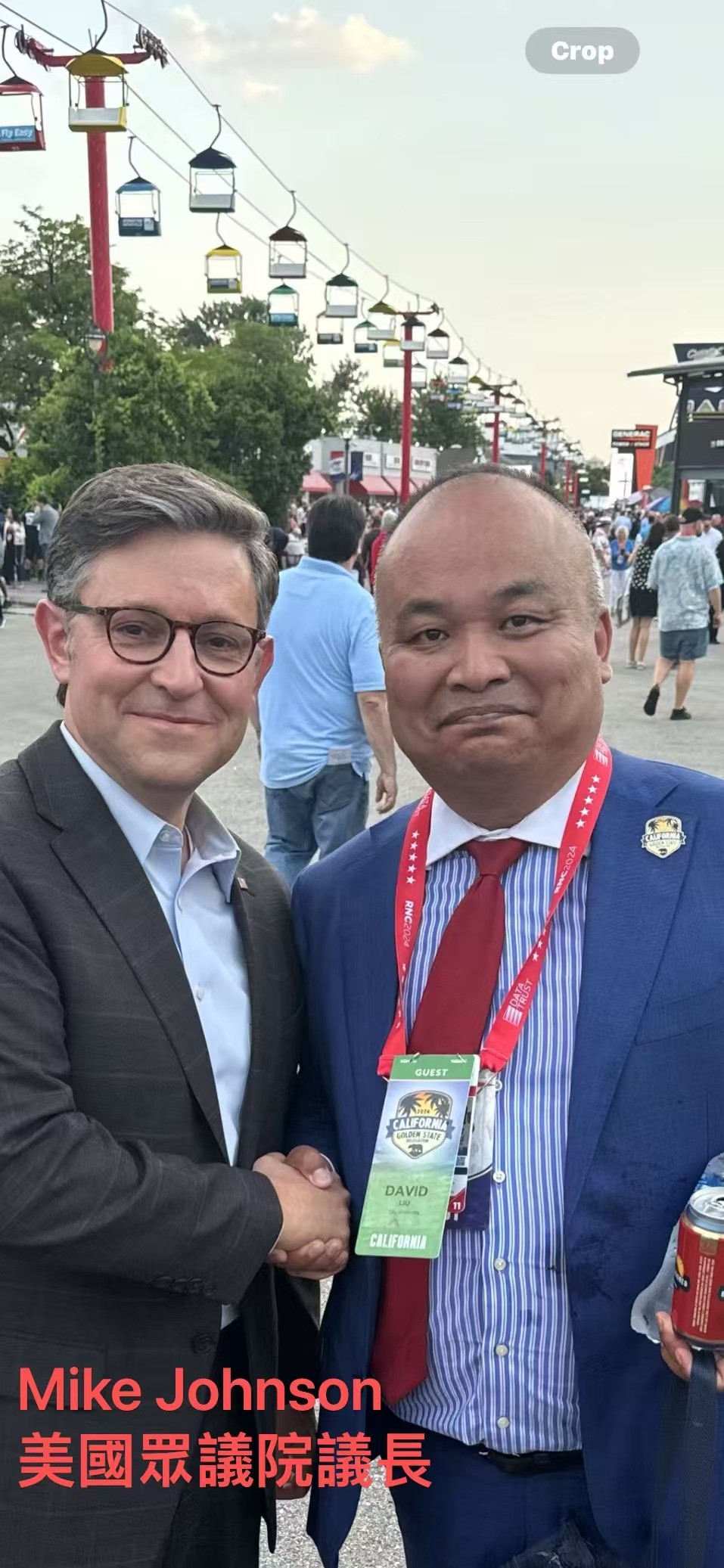
I am the nephew of Venerable Master Hsing Yun (星雲大師), the founder of Fo Guang Shan Organization. Venerable Master Hsing Yun is widely recognized as one of the most influential Buddhist leaders of the modern era and is referred to as “the Pope of the Buddhist world.” His vision of Humanistic Buddhism (Renjian Fojiao, 人間佛教) emphasizes compassion in daily life, education as a form of enlightenment, and the integratio of Buddhist principles into modern society. Growing up under his moral and philosophical influence shaped my values from an early age. He taught me that compassion is not weakness, that discipline is a form of respect, and that service to others is the highest expression of gratitude. These lessons were not abstract to me; they became the foundation of how I see the world. As a member of Master Hsing Yun’s extended family, I strive to uphold this legacy of service, ethics, and intercultural understanding.
Master Hsin Yun and I in my Youth
In 1997, Master Hsing Yun met with Pope John Paul II at the Vatican.
My upbringing was not one of luxury or entitlement. Like many immigrant families, I came to America with little more than faith and hope. What we did have was a deep belief in the opportunities this country offers to those willing to work hard, take risks, and contribute to society. I have never forgotten that America, despite its flaws and growing pains, gave me everything: an education, a career, and a voice. I consider that both a gift and a responsibility.
Over the years, I have built a reputation as a lawyer who not only understands the law but also understands people. My clients come from all walks of life. From students struggling to remain in the United States, families fighting for custody or inheritance, entrepreneurs protecting their businesses, and individuals seeking justice against unfair treatment. I view each case as more than a file number. Each one represents a story, a struggle, and a chance to make the system work the way it was meant to. The courtroom, to me, is not just a place where legal arguments are made; it is a place where truth and fairness can still prevail if approached with courage and conviction.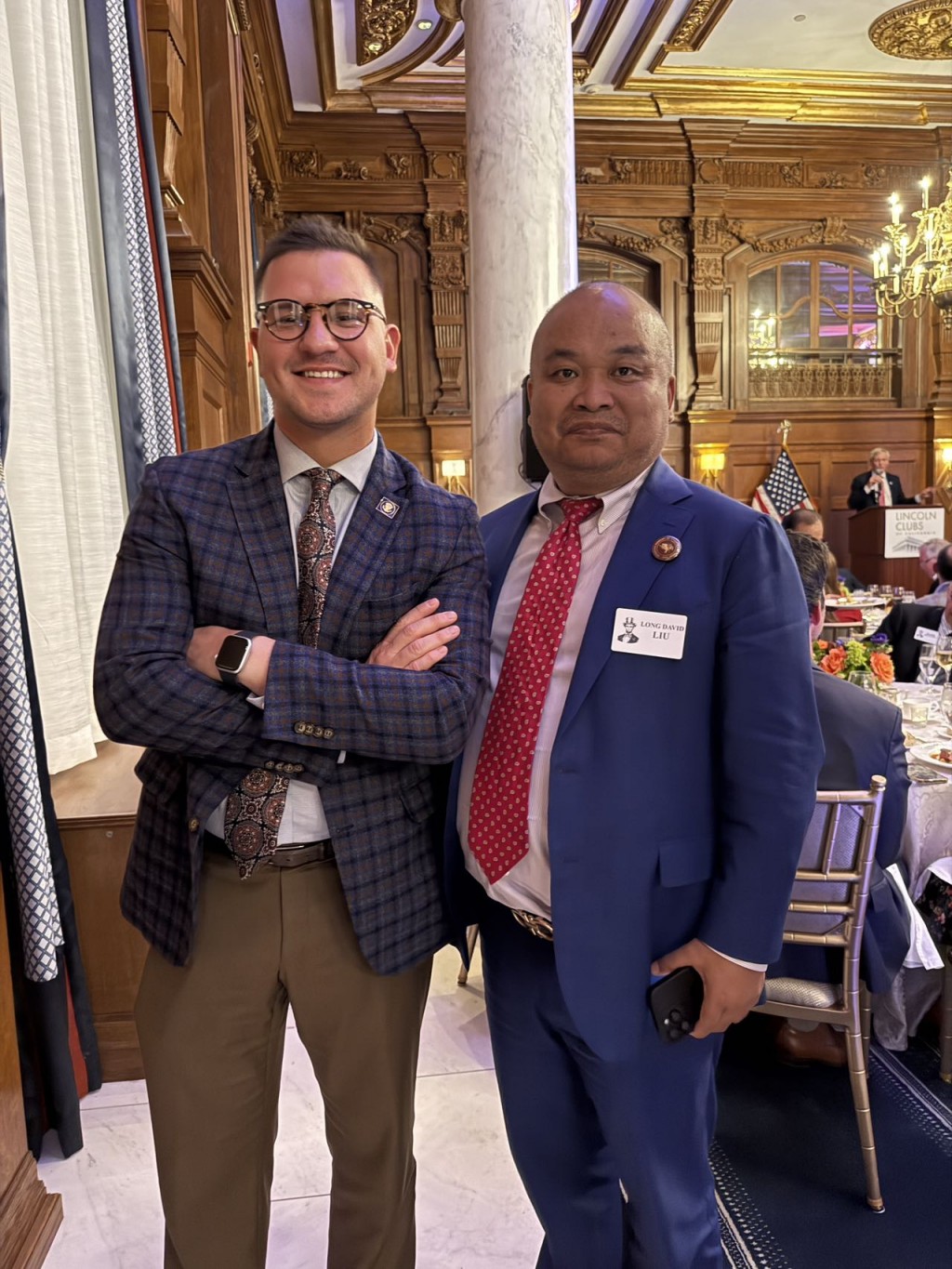
My Buddhist upbringing gave me a strong moral compass, but my American education taught me how to apply it in a world that is often gray rather than black and white. I see the law not merely as a profession but as a calling to serve, to protect, and to preserve what is right.
Politically, I have long been a supporter of the Republican Party, and that conviction surprises some people who only see the surface of Asian American life. I often say, “Every Asian is a Republican by heart, they just don’t know it yet.” What I mean by that is a recognition that our traditional values, which stresses family, discipline, education, faith, and personal responsibility are deeply conservative at their core. These are the values that built my life and that continue to guide many immigrant families across this country.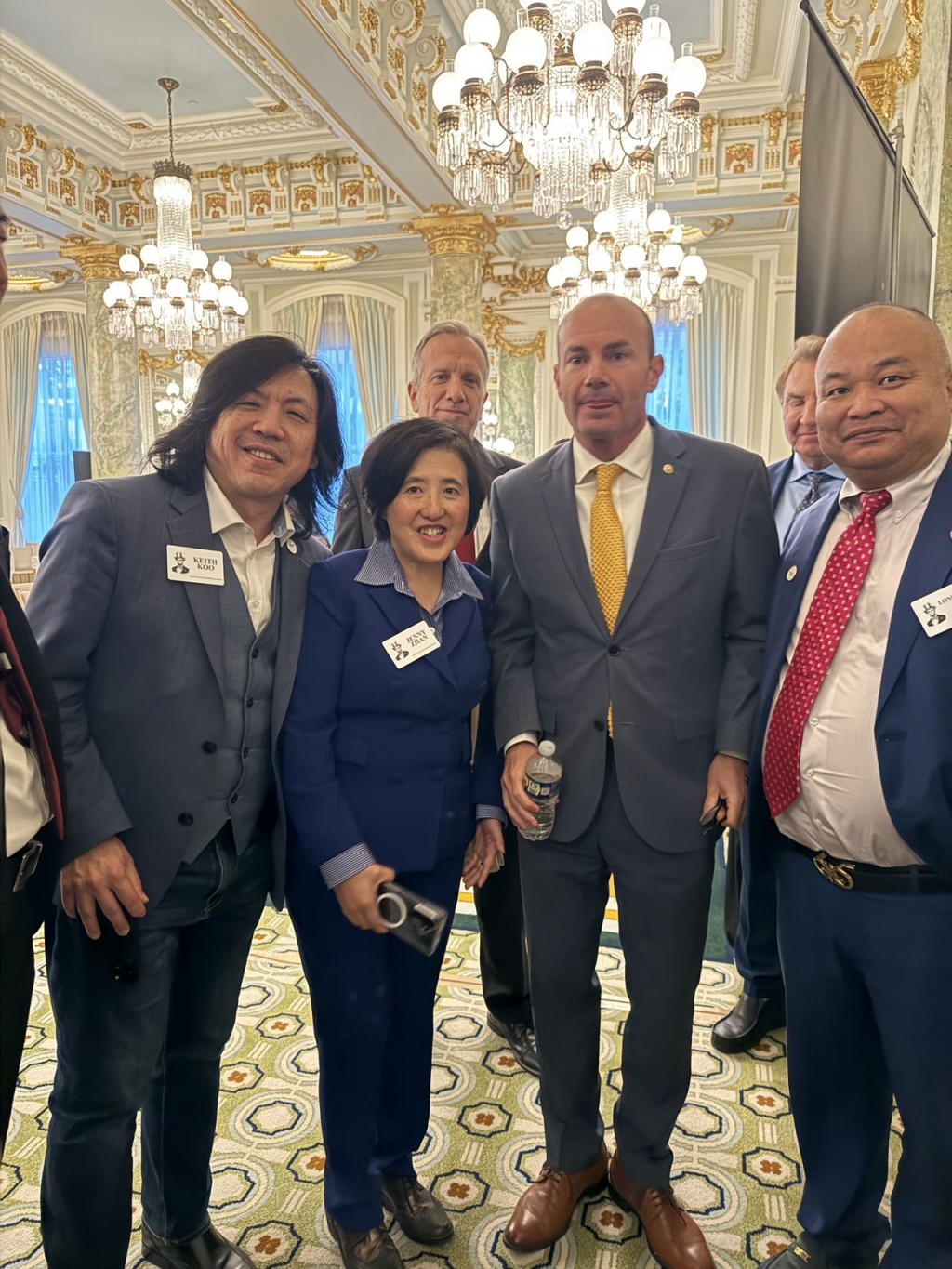
In recent years, I have watched America change rapidly. Some changes are inspiring; others are troubling. I see communities divided by ideology, families uncertain about what their children are being taught, and immigrants confused about the identity of the nation they came to join. Through my work and public speaking, I try to help the Chinese American and Buddhist communities see beyond the noise and propaganda. America is not defined by the loudest voices or the latest headlines. It is defined by the enduring principles of freedom, faith, and unity.
I believe that the United States is a sleeping giant; a nation of immense strength and goodness that has been temporarily clouded by confusion and division. We are being held back not by our diversity, but by the erosion of shared purpose. Our children are being poisoned by moral relativism. Our communities are being weakened by the idea that faith, discipline, and patriotism are outdated concepts. I cannot and will not accept that because the America I know is far greater than that. America is a country capable of renewing itself again and again. It was the country that gave an immigrant like me the chance to succeed and give back.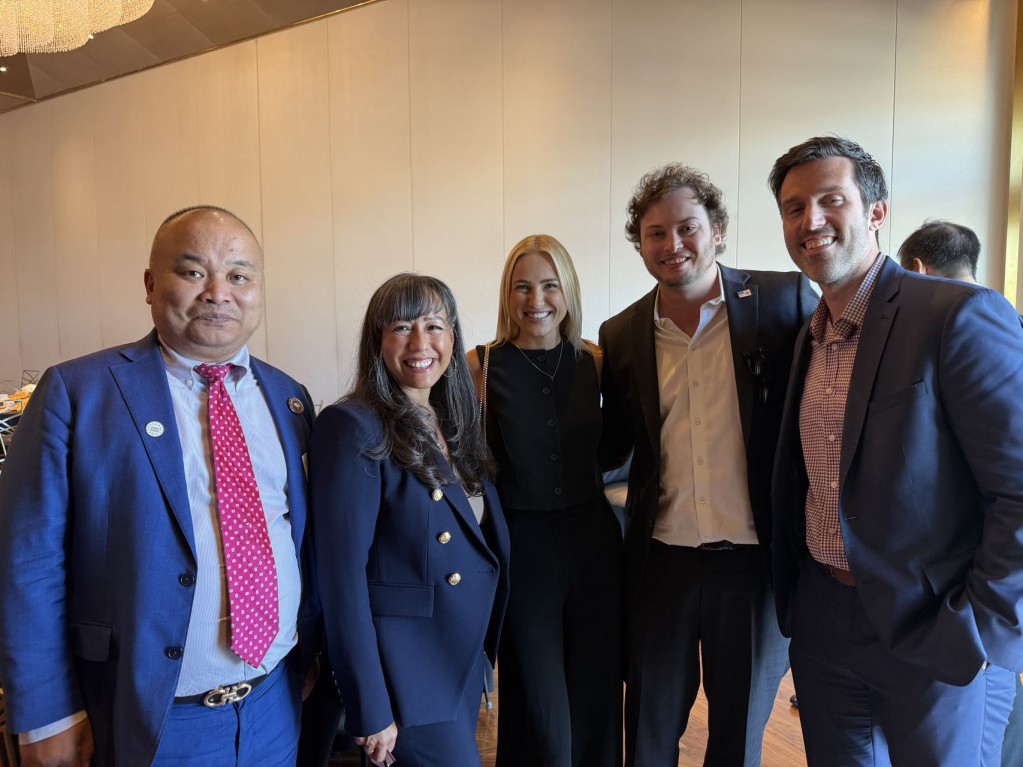
My mission today extends beyond the courtroom. I use my platform to help Chinese Americans, Buddhists, and immigrants of all backgrounds understand that they are part of something extraordinary. America is not a place to be taken for granted or to be endlessly criticized. It is a nation that demands participation, respect, and faith. When we rediscover those virtues, we rediscover ourselves.
Every client I represent, every speech I give, and every young person I mentor is part of that effort. I tell them that success in America is not measured by money or status alone. It is measured by contribution, integrity, and gratitude. My career has given me the privilege to see how resilient people can be when given hope, and how strong this country remains when its citizens remember what it stands for.
I want to share a vision of what I believe America still is and what it can be again. I have lived through both the humility of the immigrant experience and the responsibility of professional success. I have seen the best and worst of human behavior, both in and out of court. Yet through it all, I remain an optimist. I believe in law, I believe in faith, and I believe in this country.
If there is one lesson my journey has taught me, it is that freedom is not inherited; it is earned and renewed with every generation. My hope is that the next generation of Asian Americans, Buddhists, and immigrants will not forget the sacrifices that built the opportunities they now enjoy. America is not perfect, but it is still the greatest experiment in human history because it is a place where truth, courage, and hard work can still change a life. It changed mine.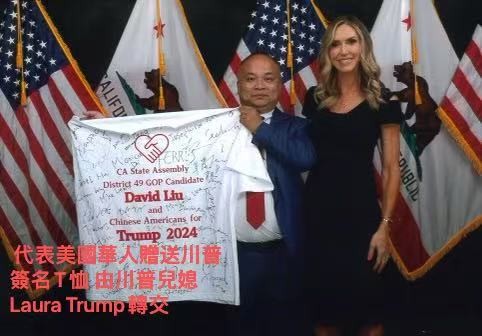
Today, I am proud to continue that mission as the Republican candidate for California’s 49th State Assembly District. I step forward not only as an attorney or community advocate but as a believer in America’s enduring promise, a promise that with discipline and unity, our best days are still ahead.
Introduction: The America We Fought to Restore
I came to America with nothing except faith. Faith in the famous “American Dream”. I did not come here seeking handouts or sympathy. I came because in America I had an equal chance to succeed. I would first like to reassure you that faith was not theoretical because I have lived it.
When I first arrived, I saw a country of confidence and compassion, where ordinary people still held extraordinary faith in the promise of freedom. The idea that your life’s direction was not determined by birth but by choice, effort, and moral strength was revolutionary to me. It reminded me of the best lessons my parents taught me in China: that character matters more than circumstance, that duty outweighs comfort, and that gratitude is the beginning of wisdom.
Yet over the years, I watched that sense of faith and responsibility fade. Political opportunism replaced service. Confusion replaced moral clarity. Loud slogans drowned out quiet virtue. We witnessed cities decline under lawlessness, schools divided by ideology, and children taught to despise their own history. Americans who still believed in faith, family, and country were labeled as backward or hateful. The very people who built this nation through discipline and sacrifice were told they no longer belonged in it.
And then, when many had given up hope that America could be restored, something remarkable happened. The forgotten men and women of this country stood up again. They found a voice in a leader who spoke plainly, acted decisively, and refused to bow to the political establishment. Donald J. Trump reminded America that leadership is not about words but results. He exposed corruption, reasserted sovereignty, and dared to say what millions felt but feared to speak. His presidency reminded the world that America does not apologize for its greatness, and that courage in defense of truth is the highest form of patriotism.
Today, as we approach the nation’s 250th anniversary, America stands at a crossroad. America in 2026 is both wounded and awakening. The nation has endured a long period of instability in political division, cultural confusion, rising crime, and economic strain. Yet, beneath the noise, a more profound shift is happening. Ordinary citizens are beginning to rebuild what government and ideology nearly destroyed. This quiet renewal is not happening in Washington, but in homes, small towns, churches, and businesses where people have chosen to take responsibility again.
The economy is recovering because Americans are rediscovering the dignity of production. After years of dependence on foreign supply chains, industries are coming home. Small manufacturers are reopening. Trades once dismissed as obsolete are respected again. Entrepreneurs who risked everything to stay open during the worst years of uncertainty are now leading the recovery. They are proving that prosperity does not come from bureaucracies or bailouts, but from effort, discipline, and ownership.
Energy independence has returned as a national goal rather than a political slogan. America is once again developing its own resources, strengthening not only its economy but its sovereignty. For the first time in decades, Americans are talking about work as a source of pride rather than a burden. The language of personal responsibility, once considered unfashionable, is once again shaping public life.
Law enforcement, which suffered years of disrespect and demoralization, is regaining its standing. Citizens have begun to recognize that safety is not a privilege but a basic condition of civilization. The false promise of “defunding” has been replaced with the reality that justice cannot exist without order. Communities are learning again that compassion and discipline are not opposites. They are partners in stability. Police officers are being thanked again. Families are walking outside without fear. The rule of law, though fragile, is returning.
Culturally, America is learning to distinguish freedom from chaos. Patriotism, long mocked by academic elites, is once again seen as a moral duty rather than a political statement. The flag is not a symbol of division but of shared sacrifice. Schools that once erased history are now teaching it honestly. Young people are rediscovering pride in their country, not because they are told to, but because they see evidence of renewal around them.
Families are reclaiming their central role in American life. Parents are speaking up at school boards, defending their children’s education from ideological manipulation. They are reasserting the right to raise their children with values that reflect faith, discipline, and gratitude.
Technology and communication have also begun to evolve in a healthier direction. Independent media, podcasts, and digital platforms are challenging the monopoly once held by corporate networks. Millions of Americans now question what they are told and seek information directly from sources they trust. The era of manufactured consensus is coming to an end. A new culture of critical thought is emerging, led by people who refuse to surrender their minds to censorship.
Even amid progress, the challenges are real. Many institutions remain corrupt or complacent. Universities continue to teach liberal ideology rather than real knowledge. The debt burden grows. Families in cities still struggle against crime and homelessness. But unlike the despair that dominated previous years, the current atmosphere is different. It is not naïve optimism. It is a steady resolve. The country understands that decline is not inevitable. Renewal is possible, but it must be earned every day.
The America of 2026 is not the perfect fulfillment of the founding vision, but it is a return to its direction. It is a nation rediscovering its identity through discipline and faith. It is a country that has learned that freedom without order is emptiness, and compassion without responsibility is cruelty. It is a country remembering that greatness is not measured by comfort, but by character.
This is the America I see emerging. It is not a fantasy or a slogan. It is visible in the quiet strength of families rebuilding, in the determination of small business owners, in the pride of police officers and soldiers, and in the renewed courage of a people who refuse to give up on the country they inherited. It is the America we fought to restore, not through anger, but through endurance, and through faith that truth will always prevail.
I wrote this book because I wanted to tell the story of that awakening through the lives of three men who embodied it: Donald Trump, J.D. Vance, and Charlie Kirk. Each of them “walked the walk.” Each refused to surrender to fear, cynicism, or convenience. Trump led through strength and action. Vance rose from hardship to hope, showing that character, not circumstance, determines destiny. Kirk gave voice to a new generation of conservatives that refuses to be silenced. Together, they symbolize the restoration of American courage.
But I also wrote this book for another reason: to speak to the immigrant children of America. I know what it feels like to live between two worlds, to feel both grateful and uncertain. My message to every young immigrant is simple: love this country enough to uphold its values. Work hard. Honor your parents. Respect the law. Be grateful, not entitled. Do not ask America to change for you. Change yourself to become worthy of America. The real American Dream is not something that is given. It is earned.
Modern liberalism has tried to sever these connections. It preaches liberation but produces loneliness. It celebrates diversity but erases identity. It claims to champion equality but destroys excellence. What makes America strong is not perpetual rebellion against its own history, but the humility to learn from it and the courage to defend it. I believe that truth must once again be our national language.
In the chapters that follow, I will explore how America is being rebuilt from the ground up by citizens who take responsibility, by leaders who act rather than talk, and by a movement that seeks restoration rather than revenge. I will show how Trump’s America challenged the corruption of globalism, how J.D. Vance’s story rekindled faith in upward mobility, and how Charlie Kirk’s activism reignited patriotism in the hearts of millions of students.
I will also speak frankly about the threats that remain: the ideological colonization of our schools, the moral collapse of our entertainment culture, the decay of once-great cities like San Francisco and Los Angeles, and the erosion of identity among a generation raised without faith. These are not separate problems but symptoms of a society that has forgotten the purpose of freedom.
As a Southern California attorney, I have witnessed firsthand what happens when accountability is absent, laws are selectively enforced, victims are silenced, and the truth becomes negotiable. Justice without discipline is chaos. Compassion without responsibility is cruelty disguised as kindness. My decision to run for Congress in 2026 is rooted in one conviction: that America must once again be a nation of laws, not of excuses. We owe that to our parents, our children, and the generations who will inherit what we build or destroy.
The America of 2026 is not the America of 2016 or 1776. It is an America tested by division, yet capable of rebirth. We have seen what happens when we drift from truth, and we have also seen what happens when truth is defended without apology. The question before us is not whether America can be great again. It is whether we have the courage to remain great.
In this book, I will make the case that America’s renewal begins not with policy papers or party slogans, but with personal virtue and moral realism. Great nations rise when good men and women walk the walk and live the values they claim to believe in. The restoration of America begins in the home, in the church, in the small business, in the local school board, and in the courage of individuals who refuse to yield to falsehood.
I write this book with gratitude to the country that gave me every opportunity and with respect for every American who still believes in honesty, work, and faith. We are not defined by our mistakes but by our willingness to correct them.
America is not finished. Its best days are still to come. I believe this because I have seen what happens when faith and freedom meet discipline and duty. That is the real miracle of America, not perfection, but perseverance.
The chapters that follow tell the story of how a nation rediscovered its strength. It is a story of revival through realism, courage through conviction, and hope through hard work. It is the story of how we can once again walk the walk, not only as conservatives or patriots, but as citizens worthy of the country we call home.


